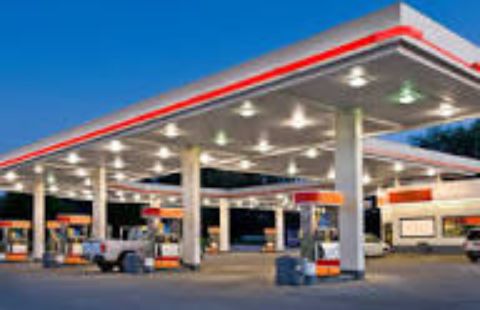Starting a gas station can prove to be an exceptionally lucrative business venture for entrepreneurs seeking investment opportunities in the ever-evolving energy industry. However, embarking on this endeavor requires meticulous planning, strict compliance with legal regulations, and a substantial amount of capital.
With that in mind, here is a detailed, step-by-step guide on how to successfully initiate and establish a gas station business:
1. Conduct Market Research:
The first crucial step is to conduct comprehensive market research. This involves assessing the demand for gasoline in the specific area where you intend to establish your gas station. Understanding the market dynamics, evaluating the competition, studying the location’s demographics, and considering the population density are all key factors in determining the potential success of your gas station.
2. Develop a Business Plan:
To ensure a solid foundation for your gas station, it is essential to develop a comprehensive business plan. This plan should encompass various aspects, including identifying your target market, estimating the startup costs involved, forecasting potential revenue streams, and formulating an effective pricing strategy. A well-crafted business plan will provide you with a roadmap to guide your actions and help you make informed decisions throughout the process.
3. Secure Funding:
Once you have a clear understanding of the financial requirements outlined in your business plan, the next step is to secure funding for your gas station venture. Depending on your financial situation, you can explore different avenues for funding, such as attracting potential investors, securing loans from financial institutions, or seeking grants from government or private organizations. Developing a compelling business proposal and demonstrating a strong potential for profitability will greatly enhance your chances of securing the necessary funding.
Read Also: How to Lunch a Successful Kerosene Business In Nigeria: 7 Steps
4. Choose an Ideal Location:
Selecting the right location is paramount to the success of your gas station. Look for a location that offers convenient accessibility, high visibility, and a strong demand for gasoline. Consider factors such as proximity to major roads, residential areas, and commercial centers. Conduct thorough site visits, analyze traffic patterns, and assess the potential for growth and expansion in the chosen location.
Read Also: How to Lunch a Successful Kerosene Business In Nigeria: 7 Steps
5. Obtain Permits and Licenses:
Operating a gas station requires obtaining various permits and licenses from the appropriate local, state, and federal government authorities. These may include environmental permits, construction permits, zoning permits, health and safety certifications, and compliance with specific fuel storage regulations. Familiarize yourself with the necessary legal requirements and ensure that you obtain all the required permits and licenses before commencing operations.
6. Purchase Equipment:
The next step is to acquire the necessary equipment to establish and operate your gas station. This typically includes fuel pumps, storage tanks, point-of-sale (POS) systems, cash registers, security systems, signage, and other operational equipment. Research reputable suppliers, compare prices, and select equipment that meets industry standards and regulatory requirements.
7. Hire Employees:
As your gas station begins to take shape, you will need to assemble a competent and reliable team of employees. Hire individuals who possess the necessary skills and expertise to operate the fuel pumps, manage financial transactions efficiently, and maintain the facilities to ensure a smooth operation. Provide adequate training to your employees to ensure they understand safety protocols and customer service best practices.
8. Develop an Effective Marketing Strategy:
Creating a robust marketing strategy is essential to attract customers, increase awareness about your gas station, and differentiate yourself from competitors. Develop a marketing plan that includes various elements such as branding, advertising, promotions, loyalty programs, and community engagement. Leverage both traditional and digital marketing channels to reach your target audience effectively.
Conclusion
It is important to note that starting a gas station is a complex undertaking that requires careful planning, substantial financial investment, and strict adherence to legal and regulatory compliance.
However, with the right location, a well-executed marketing strategy, and the acquisition of suitable equipment, a gas station can emerge as a highly profitable business venture in the energy industry, Entrepreneurng.com











